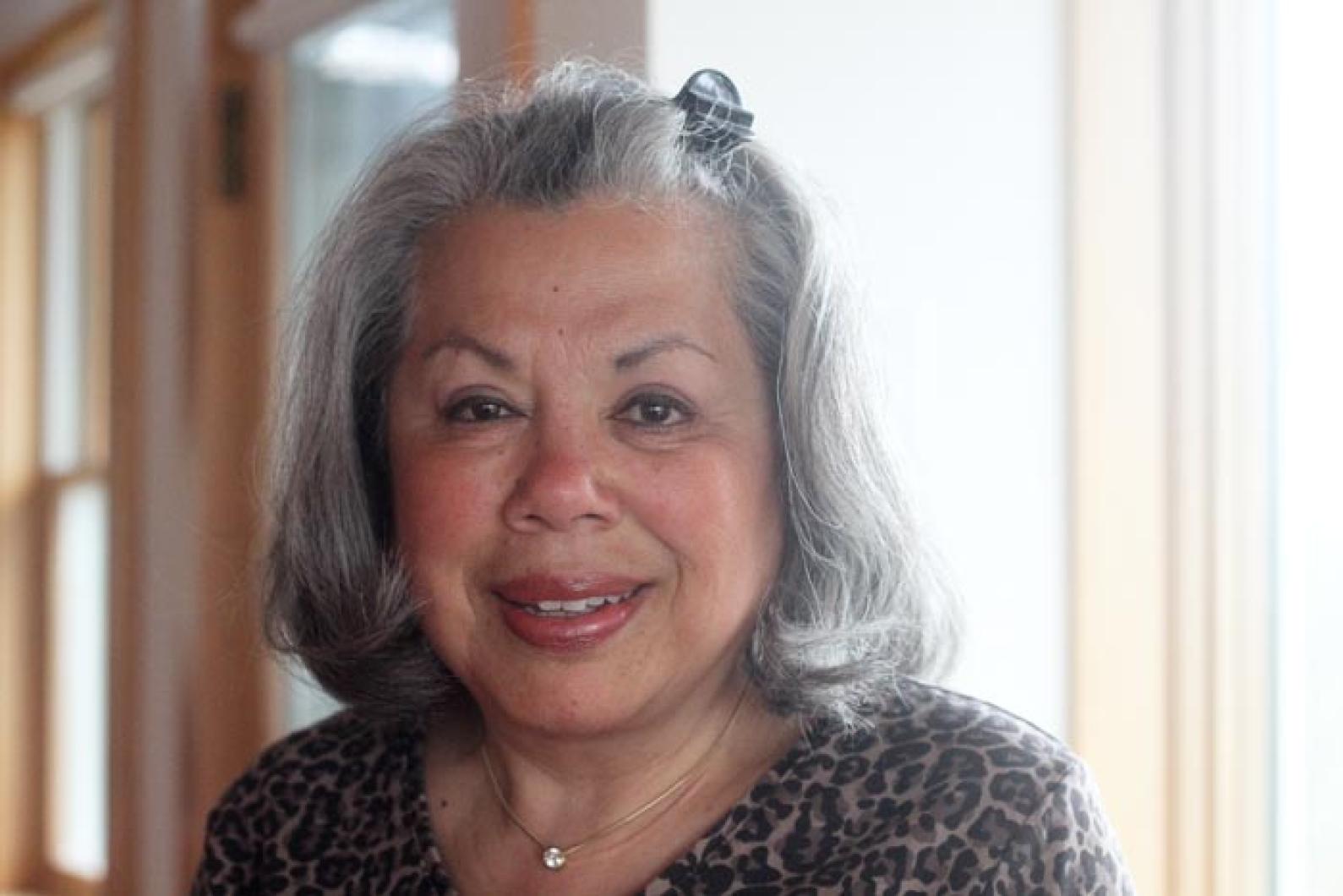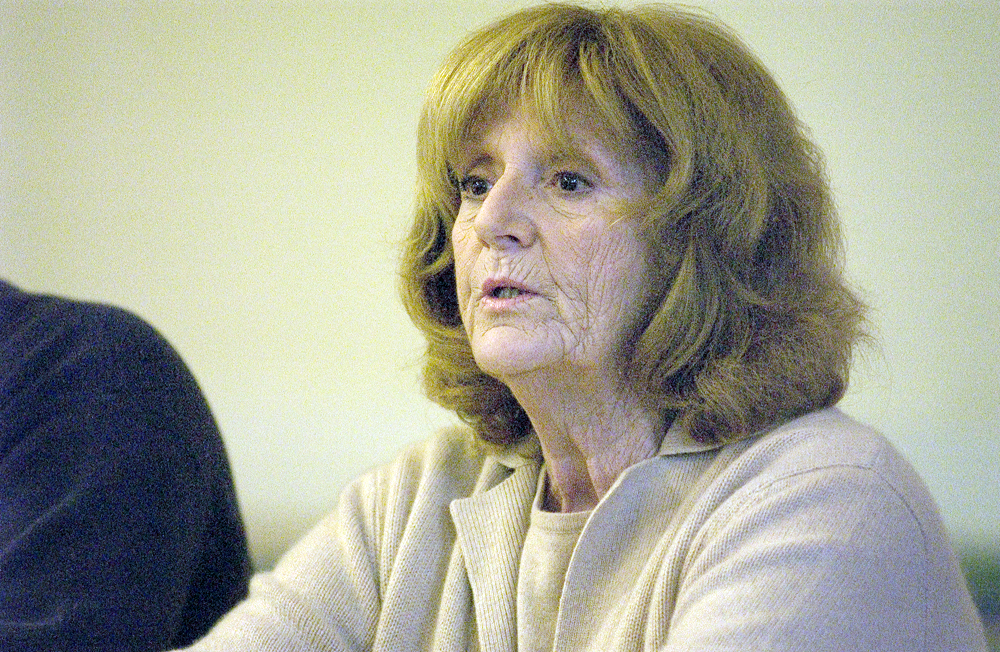Aquinnah voters will choose between two veteran leaders next week for selectman, both women, one with an extensive record of public service in town, especially in planning, and the other with a long history of service with the Wampanoag Tribe of Gay Head (Aquinnah).
Incumbent selectman and board chairman Camille Rose is seeking a third term; former tribal council chairman Beverly Wright is challenging her.
The annual town election is Wednesday; polls will be open from noon until 7 p.m. at the Aquinnah town hall.
Ms. Rose has been a selectman for the past six years and was chairman of the planning board for 25 years. She has also served on the town finance committee, shellfish committee and Martha’s Vineyard Commission. In the late 1990s she led the effort to create a townwide district of critical planning concern (DCPC) under the umbrella of the Martha’s Vineyard Commission, the only such district of its kind on the Island.
Ms. Wright was chairman of the tribe from 1992 until 2004, and has since continued to be active in Native American affairs across the country. She served as town treasurer for one term in the 1980s.
Both candidates spoke with the Gazette this week, citing better communication between the tribe and town, affordable housing, alternative energy and budget concerns as key issues.
Ms. Rose is running on her record, including the fact that she has made getting the town’s budget in order a top priority during her past two terms, and said she intends to keep it that way.
“We have a lot of things straightened out now that hadn’t been in good shape six years ago,” Ms. Rose said. “We have a good, efficient operation in the town government and a lot of really good people who are working well together. It’s a really good atmosphere I think.”
She thinks the town can save even more money in future years through regionalizing certain services such as the police department. Aquinnah currently pays approximately $11,000 a week toward the police department, she said, while six miles down the road Chilmark does exactly the same thing.
“Combining our assets and their assets, it really could work out a lot better,” she said. “That’s something we have to do because we don’t want to have to keep raising taxes.”
Affordable housing is another key concern; Ms. Rose said the town had lost several good police officers because they couldn’t afford to live in town. She said the town needs to continue to work on the problem by providing more subsidized housing. She said she would like to see the town pursue more grant opportunities.
She has been an active participant in the wide-ranging discussion about offshore wind farms, and is adamantly against building turbines off the coast of Aquinnah.
“Having that enormous wind farm right off the Gay Head Cliffs will have a horrible effect on us, not that we don’t appreciate wind, there’s just no need for it in our backyard,” Ms. Rose said. “Not only will it be a tremendous economic disadvantage to us . . . but it spoils something that’s very special to people.”
She also said she hopes to establish better communication between the town and the tribe, an ongoing issue in Aquinnah.
“Once they [the tribe] know where they’re going, I think there will be a lot more communication between us,” she said. “I hear that all the time, about how communication should be better . . . If we had some idea of what their plans were it would be different because we could work together on something substantial, but we don’t really know.”
Ms. Rose’s experience over the years has taught her to stick with her goals.
“You have to decide what you’re going to do and what you’re going to focus on and if you’re going to focus on the fiscal part of something, you can’t waiver from that, you can’t compromise,” she said. “You have to keep your eye on the ball.”
About her opponent she said: “She’s a very smart woman and I think she did a very good job as administrator for the tribe, but this is a totally different thing. It’s one thing when you’re going to the federal government for your budget, it’s another thing raising it on the backs of your neighbors.”
But Ms. Wright had a different view.
“The tribe is a business and the town is a business, and they’re both there to help the needs and supply what citizens want — I don’t see a big difference,” she said. “It has to be run like that.”
On regionalization, she agreed with Ms. Rose but said the actual fact may be in the future.
“We now have a Tri-town ambulance but we could have other departments,” she said. “Maybe we could do some regionalization with the up-Island towns and look at the Island as a whole. It’s not something that’s going to happen right away.”
She also cited the need for more affordable housing in town and across the Island, and suggested better communication between summer and year-round residents.
“I think we could work together . . . there’s a lot of expertise out there,” Ms. Wright said. “If they came together on a project that the town needed or there was something in the budget that just couldn’t happen.”
As for town-tribe relations, she said if elected she could bring about improvements: “I sit on the tribal council and know the selectmen — there’s better communication right there,” Ms. Wright said. “I wouldn’t blame the tribe and I wouldn’t blame the town, I think it’s both.” She continued:
“I think we’re too small of a town to have this tension on certain issues and I think we could work it out. People have come to Aquinnah because they like the diversity that’s here and I think they like that there’s a native tribe here and I think we’re too small to sometimes have the tensions that we do. I would certainly try my best to alleviate those tensions and when issues come up not to let it go to where there is this deadlock.”
Ms. Wright currently splits her time between the Island and West Virginia, where her husband, Robert MacDiarmid, has a company.
“I don’t go back to West Virginia until the fall, and then we’re here for Thanksgiving, Christmas . . . if I become selectman I’ll just stay here more and if I’m down there and they need me I’ll come,” she said.
She concluded: “I’m not running against Camille, I’m running for the position. I think I have the ability to see both sides, or three sides or four sides. I talk with the summer residents and tribal members, because I work part time up at the shops I see the tourists coming in, I see what’s going on up there. I think I have an overall view of what’s happening in town.”





Comments
Comment policy »